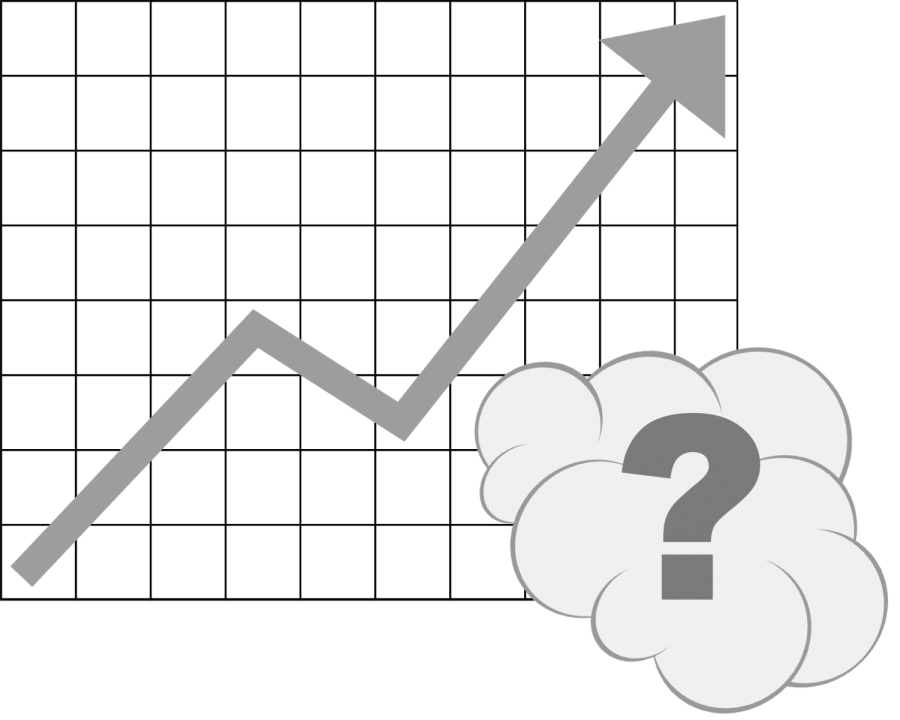The stock market: A weapon of class warfare
Popular media, such as “The Wolf of Wall Street” and social media influencers, present a sensational and glory-filled perspective of the United States stock trade, but the truth is far more sinister.
The origins of the stock market system come from early civilizations’ trade practices and worked to keep money in the upper classes of society as a weapon in class warfare. By the Middle Ages, it was common practice for merchants to buy products at a set low price, understanding that the value would increase when trade was slow or nonexistent. An early form of market manipulation, they would then sell products for inflated prices, earning a profit that they would later lend at high-rates to lower-class individuals who needed money to buy said goods.
It was not until the late 1700s that the stock market was adopted from the European model in the U.S., first in Philadelphia and later moved to New York, placing the country in the global economy and supporting the western expansion movement.
The stock market is open for any person to invest in. However, for a person to profit from investments, they must have enough disposable income and liquid assets to risk in the market. This requirement for success disqualifies individuals from benefiting from the open market while allowing the rich to accumulate more wealth. During economic crises, such as the Great Depression and the stock market crash of 2008, the wealthy experienced little financial harm, sometimes gaining from tragedy, and the middle class and poor were further disadvantaged. In essence, the system only works for the rich.
According to 2019 data, the top 10 percent of Americans hold 84 percent of stocks; the top one percent hold 38 percent of that, and the bottom 80 percent of Americans hold 30 percent of stocks. Mirroring stock ownership, in the past century, the wealth gap between socioeconomic classes has grown. By 2016, upper-class families held 75 times more wealth than lower-class families and 7.4 times more wealth than middle-class families. In 1983, the gap was 28 and 3.4, respectively.
The operationalization of the stock market is the antithesis of “The American Dream” and meritocratic values held in the U.S. culture. Just as it was intended to at its inception, the stock market funnels money out of lower-classes and holds it stagnant in upper-classes as class warfare. As low and middle-class people drudge through 40+ hour work weeks, wealthy individuals sit back and rely on their hoarded generational wealth to support them while throwing the penny stock breadcrumbs to the working class who support their addiction to affluence.
Despite the overwhelming power and influence the wealthy hold, having a comprehensive understanding of how stocks work is the easiest way to fight the cycles capitalism has trapped people in. While the wealthy win the numbers monetarily, they do not have the person-power to compete.
The most recent example of knowledge beating money occurred in Jan. 2021 when a group of Redditors caused the once-dead GameStop stock to increase 1700 percent. Other previously low-value stocks were manipulated; BlackBerry increased 280 percent and AMC increased 840 percent. After learning that Wall Street hedgefund tycoons were shorting stocks to leech money out of individual investors, affectionally referred to as “ dumb money” on Wall Street, a Reddit page organized thousand of individual investors and inflated these stocks, allowing “dumb money” investors to see significant payouts.
Understanding the stock market as a tool of oppression by the upper-class is the first step to reappropriating it to operate for the people and not the capital-driven oligarchs as it currently exists. The wealth gap and class struggle are increasing while access to information, exposing how the upper-class is siphoning wealth, is expanding. As the French Revolution Era philosopher Jean-Jacques Rousseau once wrote, “When the people shall have nothing more to eat, they will eat the rich.”

Isabelle Hajek is a senior at the University of New Haven majoring in psychology with a concentration in forensics and a double minor in criminal justice...



